Molybdenum Glass Melting Electrodes
Elmet Technologies manufactures molybdenum glass melting electrodes for maximum efficiency and superior performance in demanding conditions. The high temperature strength, rigidity, and inherent electrical properties of molybdenum make it the best material choice for electric heating in the glass melting process. We often machine simple or custom complex thread forms to meet the most precise and exact customer requirements.
Elmet Technologies regularly partners with glass producers and glass melting furnace OEMs to deliver standard sizes with rapid turnaround times, as well as innovative custom solutions to meet special requirements.
Our Molybdenum GME Capabilities
As a global leader in refractory metals, Elmet Technologies has state-of-the-art laboratories to enhance our molybdenum glass melting electrodes and product performance. Through collaboration with our customers, Elmet is also continuing to create new and innovative products with advanced high performance properties.
Our capabilities with molybdenum glass melting electrodes includes:
- Standard or tapered threads
- Mo GME and MoZr GME (coated and uncoated)
- Machined or centerless ground surfaces for concentricity and straightness
128 micro in. (3.25 μm) or better - High purity (99.95% minimum)
- Bubble free, low carbon electrodes
- 1.25 in (32 mm) to 8 in. (203 mm) diameter
- Uniform recrystallized grains for creep resistance
- Custom fabricated top mounted electrodes and bi-metallic
- Wide range of sizes suitable for various furnace designs and glass chemistries
For decades, we have provided high-quality molybdenum materials and proven GME technology to our glass industry partners known for its high-purity, concentricity, creep resistance, and bubble-free performance.
Advantages and Unique Benefits of Molybdenum Glass Melting Electrodes
There are several advantages and unique benefits for utilizing molybdenum glass melting electrodes in the glass melting process. One of the most important is their ability to enable reduced contamination in the glass melt while also yielding the highest glass purity. Molybdenum as a material is often used for its unique material, electrical, process, corrosion, and cost conditions required for the glass melting process. Additionally, other reasons to utilize molybdenum glass melting electrodes include:
- Excellent strength and stability at temperatures over 2000°C
- High thermal and electrical conductivity
- Low coefficient of thermal expansion (CTE)
- Resistance to corrosion
- Minimizes detrimental glass discoloring
- Good machinability
Uniquely, our tapered threads allow a 60% reduction in connect time. These units are automatically self-sealing, making them less prone to galling or misalignment. Converter electrodes are also available for changing between electrodes.
Furthermore, the unique benefits of using higher quality GMEs can result in higher energy efficiency, with lower capital cost per unit of capacity, plus more control over glass melting processes and applications. As a result, they are less dependent on radiant heating, which in turn produces fewer environmental emissions.
Oxidation Resistant Coatings
Elmet Technologies is continually improving our coatings to provide molybdenum and other refractory metals with outstanding protection against oxidation at high temperatures. Reliable and reproducible, these coatings not only protect against oxidation from air, but also from oxygen-rich atmospheres, oxidizing chemicals and flames.
The coating is fully compatible with molybdenum and can be used for the coating of molybdenum glass melting electrodes and other components for the glass industry, protecting them from oxidation during the critical start-up period of a furnace. Our silica-based coatings also have no coloration or other detrimental effects upon the glass.
The ceramic coating is integral with, as well as chemically bonded to, the metal surface with no additional build up displaying a uniform smooth surface finish that does not separate or spall. Being produced via a chemical vapor deposition (CVD) process, the coatings are uniform, thinner and equally applied to all surfaces including the inside of thin tubes.
What are molybdenum glass melting electrodes?
At a basic level, molybdenum glass melting electrodes (or GMEs) are components that are used as heaters for glass melting either via all-electric heating or electric-boosting methods. As the name implies, they are used as resistance heating elements that are submerged under a pool of molten glass. GMEs help to maintain the material at the proper processing temperature. As a result, the glass industry relies heavily on efficient, high-performing GMEs.
They are a key component in the production of everyday products, such as: ceramic fibers, fiber glass, and glass containers. Other end products which benefit from GME technology include glass insulation, lighting fixtures, glass bottles, as well as decorative flat glass in architecture and construction. In fact, glass melting even serves some pharmaceutical market purposes.
Applications and Use Cases
The main application for molybdenum glass melting electrodes is for melting, homogenizing, feeding, and shaping of glass products. Although, glass producers and furnace OEMs are not the only ones who benefit from their use. Subsequently, the manufacturing and production markets that use and need glass also benefit greatly from improved glass melting processes.
In addition, the material is used in the medical technology for the production of components for X-ray tubes.
Materials and Specifications
Undoubtedly, the best materials for glass melting electrodes are high purity molybdenum and premium molybdenum-zirconium (MoZrO2). This is because they can resist extremely high temperatures necessary to melt and manipulate glass materials. Also, given the temperature in these environments sometimes reach over 2000°C, molybdenum also provides strength, stability, high thermal and electrical conductivity, and a low coefficient of thermal expansion (CTE). In addition, this material minimizes detrimental glass discoloring due to its outstanding resistance to chemical corrosion. Molybdenum glass melting electrodes also possess a rigidity that makes for easy installation, coupled with electrical properties that boost efficient machine operation.
TOLERANCE
Diameter mm | inch | Diameter variations (powder metallurgical) mm | inch | Diameter variations (electron beam melted) mm | inch |
| 31.7 | 1-1/4 | + 0.38 | + 0.015 | + 0.5 | + 0.02 |
| 38.1 | 1-1/12 | + 0.38 | + 0.015 | + 0.5 | + 0.02 |
| 50.8 | 2 | + 0.76 | + 0.030 | + 0.5 | + 0.02 |
| 63.5 | 2-1/2 | + 0.76 | + 0.030 | + 0.5 | + 0.02 |
| 76.2 | 3 | + 1.0 | + 0.040 | + 0.5 | + 0.02 |
| 101.6 | 4 | + 1.0 | + 0.040 | + 0.5 | + 0.02 |
Length variations + 5 mm / + 0.2 inch
Chemical Characteristics¹⁾
Molybdenum powder chemical compositions are used for producing glass melting electrodes.
HIGH PURITY MOLYBDENUM ELECTRODES
| Element | Standard | |
| Mo | min | 99.95 % |
| C | max | 0.005 % |
| Ca | max | 0.003 % |
| Cu | max | 0.002 % |
| Fe | max | 0.005 % |
| Mg | max | 0.001 % |
| Mn | max | 0.001 % |
| Ni | max | 0.0015 % |
| Sn | max | 0.003 % |
Mass fraction in %
1) Information on testing methods available upon request.
Maximum variations from straightness will be 0.030 inch per foot (2.50 mm per meter). Maximum variation in cut lengths will be +1/4″, -0 inch (+6.35 mm, -0mm). However, special tolerances are also available upon request.
U.S. and European standard and special threads are also available on either or both ends.
PREMIUM MOLYBDENUM ZIRCONIUM ELECTRODES
| Element | Standard | |
| Mo (By Difference) | min | 98.50 % |
| Mg | max | 0.001 % |
| Mn | max | 0.001 % |
| Ni | max | 0.002 % |
| Al | max | 0.002 % |
| Cu | max | 0.002 % |
| Pb | max | 0.002 % |
| Ti | max | 0.002 % |
| Ca | max | 0.003 % |
| Si | max | 0.003 % |
| Sn | max | 0.003 % |
| C | max | 0.005 % |
| Fe | max | 0.005 % |
| Cr | max | 0.005 % |
| Zr | max | 1.2-1.4 % |
Why Choose Elmet for Molybdenum Glass Melting Electrodes?
Elmet Technologies has the expertise of working with alloys for high performance applications in many markets. Specific to the glass industry, Elmet provides the industry with the highest standards for efficient glass melting and electric boosted melting with its high-purity molybdenum (Mo), as well as premium molybdenum-zirconium (MoZr) glass melting electrodes. While the market has long enjoyed our legacy products and materials, it also relies on our ability to research, develop, and innovate new alloys, materials, and products to meet new market demands.
Partnering with Elmet Technologies also enables customers access to:
Rapid turnaround times on standard sizes
- Ability to develop customer-specific solutions
- Unique, industry-leading oxidation resistant coatings
- Deep applications knowledge and technical industry expertise
- Materials with excellent creep resistance and corrosion resistance
- Material expertise: providing consultation, data, and recommendations
- The last and only 100% US-owned-and-operated, fully-integrated supplier
- High production capacity, as well as unique capabilities at each of our 3 U.S. facilities
- Quality control with accreditations to the latest ISO 9001, AS9100, and A2LA standards
To discuss your glass melting requirements, contact our team of dedicated applications experts today.

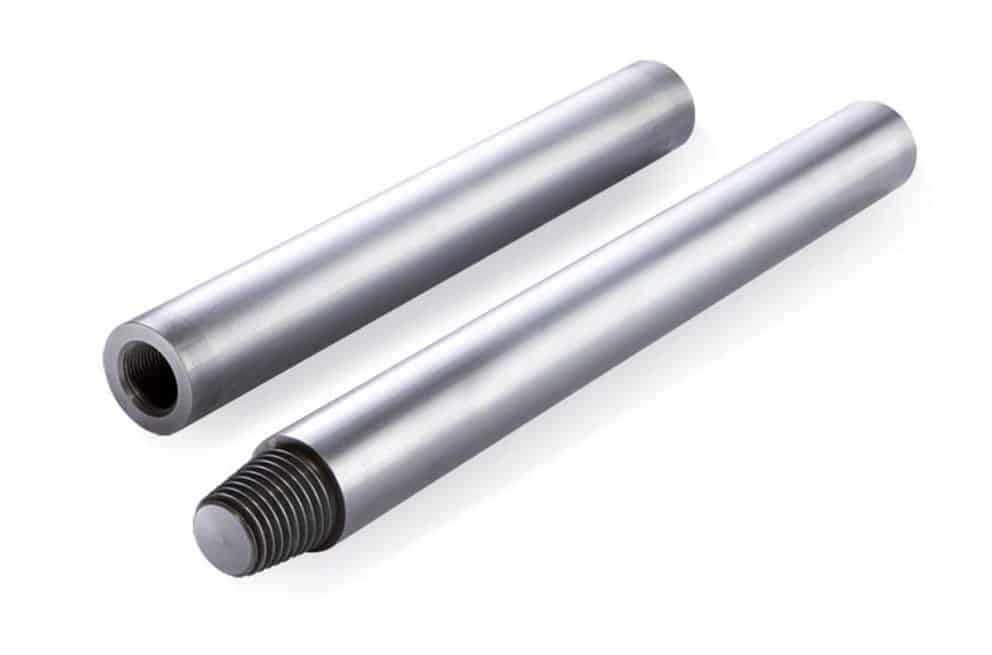
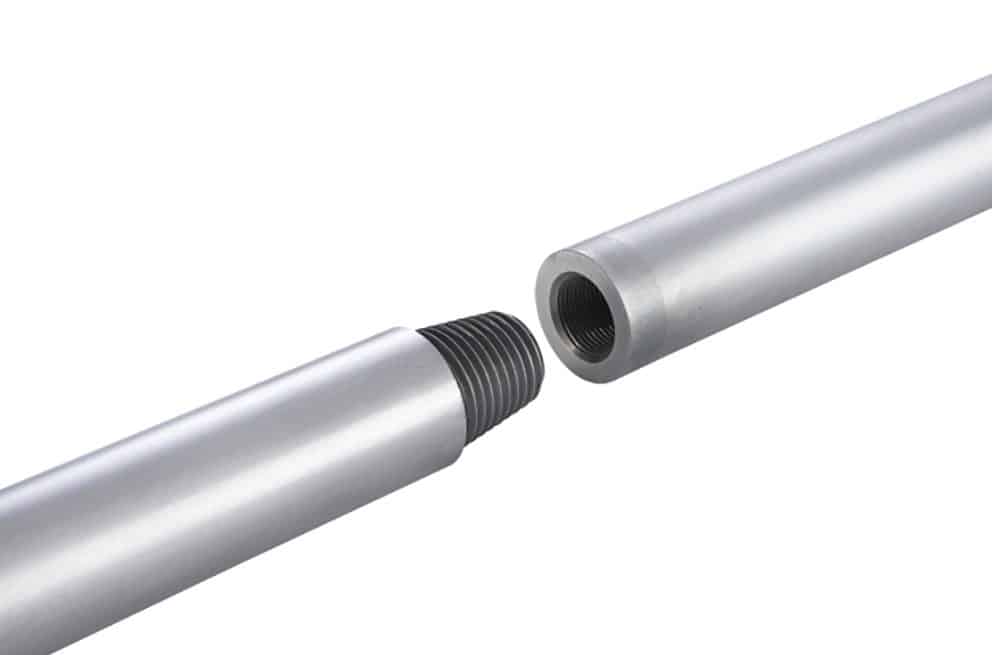
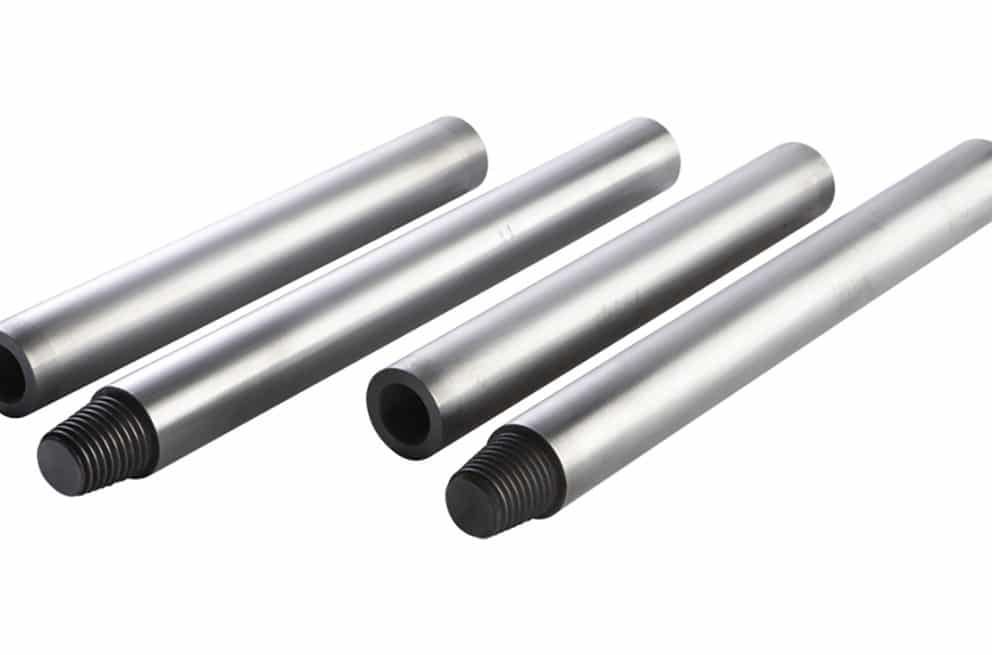
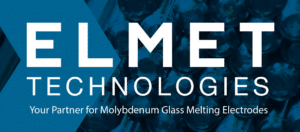
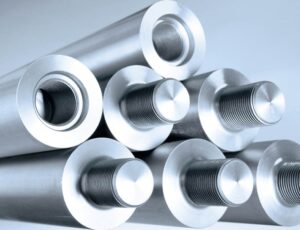
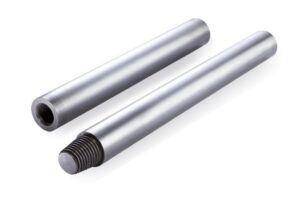
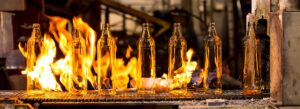
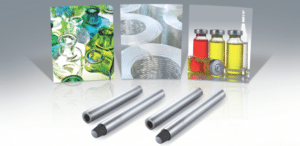
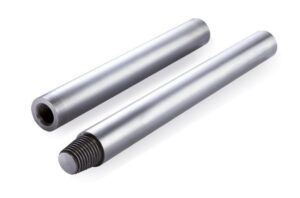
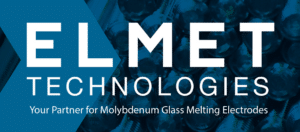 Rapid turnaround times on standard sizes
Rapid turnaround times on standard sizes